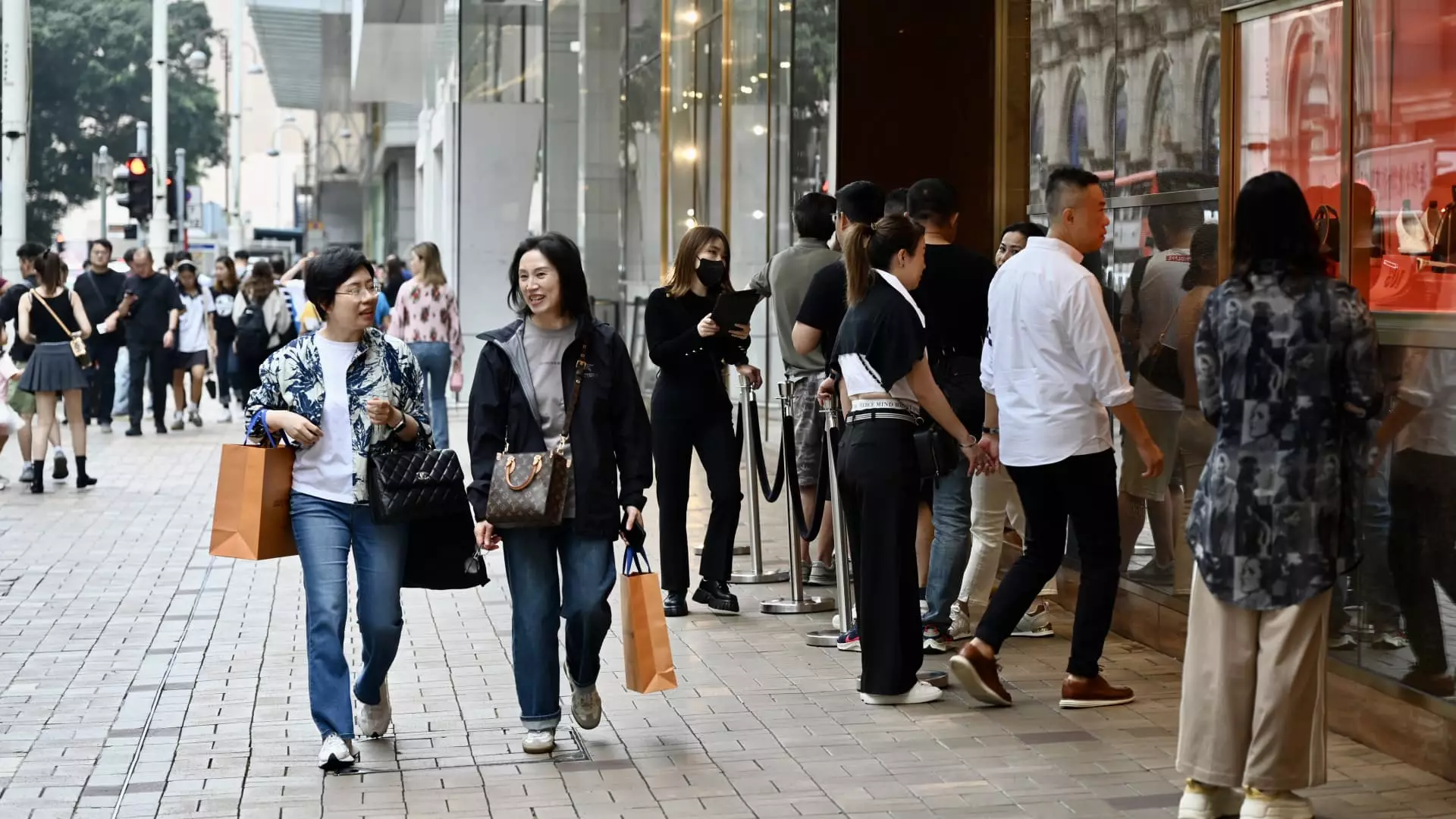The retail sector in Hong Kong has been struggling since the pandemic hit, with analysts projecting a slow recovery that could take years to materialize. Despite a significant increase in visitor arrivals, retail sales in the city have plummeted by 7.3% in the first seven months of the year compared to the previous year. This decline is particularly concerning given that mainland Chinese tourists accounted for a large portion of spending in Hong Kong, making up 90% of same-day visitor expenses and 67% of overnight visitor expenditures in 2023.
Reasons for Decline
Analysts attribute the decrease in spending by mainland Chinese tourists to various factors, such as the economic slowdown in China, shifting consumption patterns, increased focus on savings, and changing travel preferences. The reduced spending is also linked to a preference for experiences over material goods, as Chinese consumers prioritize reconnecting, making up for lost time, and living in the moment post-Covid. This shift in values has led to weaker sales in high-end luxury items, which were previously a significant driver of retail spending in Hong Kong.
The economic uncertainty in mainland China has had a trickle-down effect on spending behavior, with tourists opting for “zero-dollar” tours where expenses are prepaid, limiting additional spending in shops and restaurants. This change in spending habits has contributed to the decline in retail sales in Hong Kong, signaling the end of the city’s golden era as a shopping paradise. Even Hong Kong residents are choosing to shop in neighboring Shenzhen due to lower prices and better shopping options, further impacting the retail sector in the city.
Shift in Consumer Mindset
The decline in luxury spending by mainland Chinese tourists has had a profound impact on Hong Kong’s retail industry, forcing the sector to undergo challenging adjustments. Both tourists and locals now have a different mindset when it comes to shopping, with a decreased focus on luxury items and a growing interest in engaging and memorable shopping experiences that cater to a broader range of consumers. Analysts believe that the recovery of Hong Kong’s retail industry is feasible but will require a shift away from traditional luxury spending towards more inclusive and engaging strategies.
While some analysts are optimistic about the bounce back of Hong Kong’s retail industry, they caution that it will take longer than previous cycles due to the current economic conditions and structural challenges in China. Consumer confidence from the Chinese market is expected to recover gradually, but a significant amount of time is needed for Hong Kong’s retail sector to fully rebound. The key to success lies in adapting to the changing consumer preferences and creating innovative shopping experiences that resonate with a broader audience. Despite the challenges ahead, there is hope for a resurgence in Hong Kong’s retail industry if the focus shifts towards meeting the evolving needs of consumers in the region.

